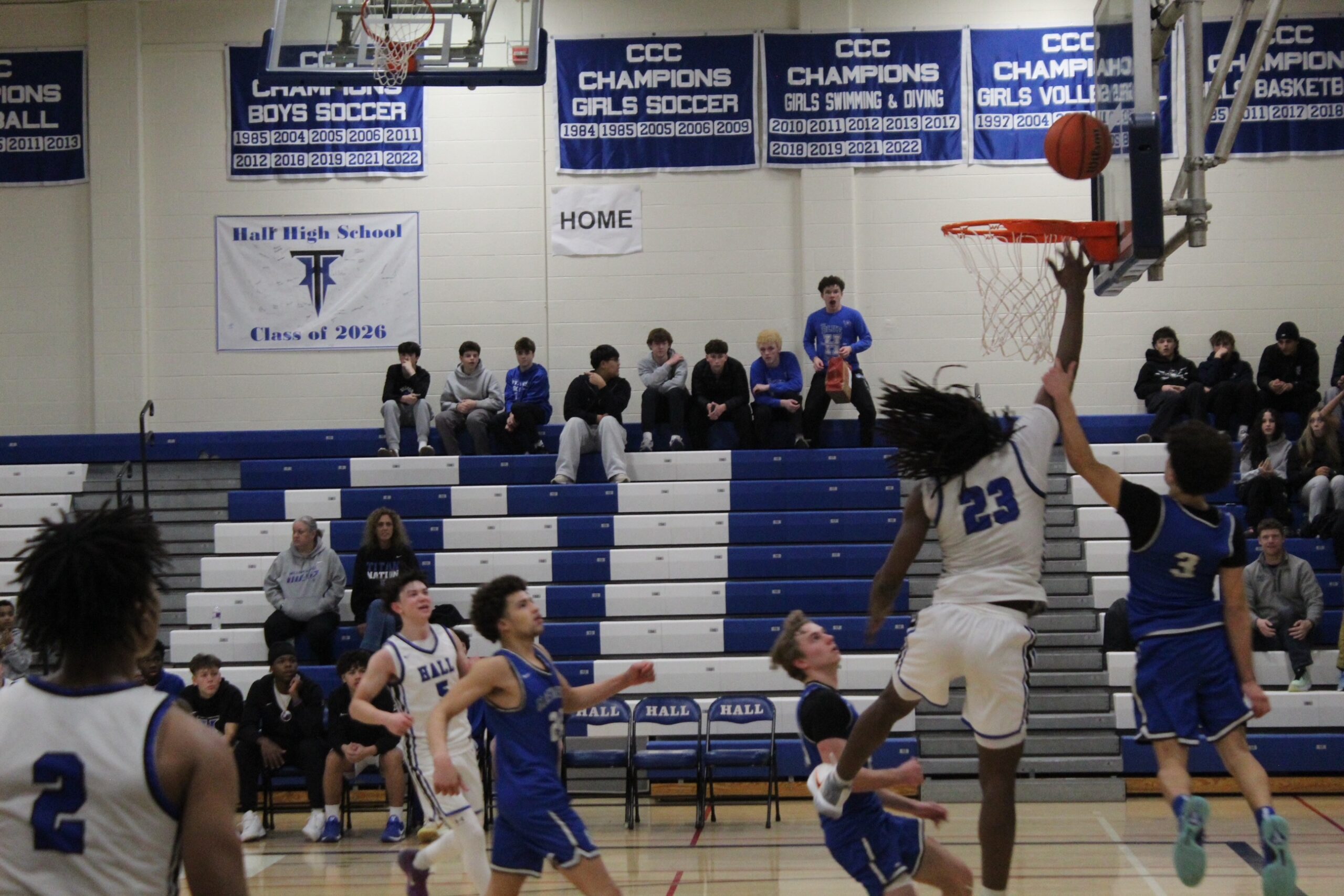West Hartford Board of Education Passes Amended 2017-2018 Budget

Audio By Carbonatix

The West Hartford Board of Education approved a total budget of $160,157,754 Tuesday night, an overall increase in spending of 4.48 percent.
By Ronni Newton
West Hartford Board of Education members undertook a very thorough and deliberate line-by-line discussion of the budget originally presented by Superintendent Tom Moore on March 7, and after making more than $6 million in changes, voted 5-2 to approve a $160,157,754 spending plan, an increase of 4.48 percent or $6,874,732 from last year’s budget.
Republican Board of Education members Jay Sarzen and Mark Zydanowicz voted against the amended budget, while all five Democrats voted in favor it.
Prior to the discussion, Board of Education Chair Mark Overmyer-Velazquez said that in addition to several hearings attended by hundreds of residents and employees, hundreds of emails had been received and read by all Board members. He said it has been very gratifying to see the level of commitment, interest, and value all place on students, teachers, and staff, and the Board has spent hundreds of collective hours considering what is “the most difficult Board budget in my tenure and in recent memory.”
The Board of Education considered a budget with hefty increases driven by contracted salaries, medical costs, and transportation, even before confronting the impact of Gov. Dannel P. Malloy’s proposed state budget.
The initial budget Moore presented on March 7 totaled $166,220,361 million, a $12,937,339 million, or 8.44 percent increase over last year’s $153,283,022 million West Hartford Public Schools budget. Included in that proposal were $2.16 million in cuts Moore made to the roll-forward budget, some of which were related to decreased enrollment, and included a reduction in staff of roughly 16 full-time equivalent (FTE) positions.
Moore’s original proposal incorporated teacher pension costs allocated to the town in Malloy’s budget, adding $8.01 million to West Hartford’s education budget. The governor’s proposed changes to the state’s special education funding would give the town an additional $2.2 million, creating an overall $5.81 million hit due to the governor’s proposal.
The governor’s proposed $8.5 million reduction in ECS funding to West Hartford is not part of the education budget, and the Town Council will consider what number to include for that funding as part of its budget approval process on April 25.
When he presented his budget proposal on March 7, Moore also provided the Board with an outline of additional budget reductions, all of which were considered.
Some items were taken off the table prior to Tuesday night’s vote. Those included cutting elementary school magnet teachers, elementary school early intervention reading specialists, elementary school librarians, and the elementary school world language program. The board also removed from consideration a two-student increase in elementary school class size, elimination of full-day kindergarten at non-Title I schools, reducing unified arts to one per day at the middle schools, eliminating high school reading teachers, eliminating the QuEST program at the middle and elementary school level, reducing pupil services staff, reducing early learning center staff, reducing counselors, eliminating one nurse position, and eliminating the contract with the Bridge Family Center.
Over the course of four-and-a-half hours, the Board of Education considered and voted one-by-one on all of Moore’s other potential budget reductions, as well as a few others that were recommended, before voting on the complete budget.
The first – and largest – amendment to Moore’s proposed budget was a 5-2 decision along party lines not to incorporate the $5,808,607 million impact of the governor’s budget on the West Hartford Public Schools budget.
Sarzen opposed the move, stating that he understood that the town would likely not feel the full brunt of the governor’s budget, “but what I do know is that the state is still in trouble and we don’t know what impact will be handed down to us.”
Director of Finance and Planning Chip Ward said it is unusual for the Board to even consider a state budget in its deliberations since that is normally a town-level decision. He said that after extensive discussion with the town manager, and because of the level of disapproval with the governor’s budget and the fact that no other town or board is incorporating the teacher pension allocation, he thought it would be best to “take out this uncertainty.”
Moore agreed that it made sense not to consider the governor’s budget in West Hartford’s education budget, and said if there is ultimately a funding shortfall, the town can handle it through its reserve fund. Even though uncertainty remains, making the decision to leave the governor’s changes in the education budget would require either deep cuts and layoff notices or a much greater tax increase. If the governor’s budget is ultimately not approved, it would be too late to rehire teachers and redo scheduling. The decision to consider, Moore said, is: “Do I do uncertainty with a backup plan, or uncertainty where it impacts the kids?”
The Board made a few other minor changes to Moore’s budget. While a decision was made to maintain the level of staffing for high school library and media specialists, the department supervisor position for Library Media Services was eliminated by a vote of 6-1, a savings of $65,000.
“As an academic I will go to the wall for librarians. A department supervisor is important but if have to cut somewhere this is what I would go for and I say this with intense guilt,” Board Vice Chair Cheryl Greenberg said.
The Board considered the option of cutting by 10 the number of days of special education summer school, which would have resulted in savings of $357,000. That vote failed but the Board instead voted 5-2 along party lines to reduce the program by six days, from the current five days per week for six weeks to four days per week for six weeks, cutting a total of $215,000 from the budget.
Director of Pupil Services Gretchen Nelson said that although this is a critical program to avoid regression, there are issues with attendance since 40 percent of participants attend less than 90 percent of the time, and the four-day-per-week option would still allow families to travel for long weekends.
A cut not on Moore’s potential reduction list was also approved. The Board voted unanimously to drop its membership in CABE (Connecticut Association of Boards of Education) because they saw little value in it, saving $24,000.
Finally, although Moore had proposed increasing the pay-to-play fee for high school sports from $150 per sport with a $600 family cap to $200 per sport with an $800 cap, the Board decided that was going too far. “This would set us at the highest other than Tolland,” said Zydanowicz, who added that 70 percent of towns don’t charge for sports at all and he thinks it unfairly affects athletes and their families.
Dropping the pay-to-play back to current levels would have added $100,000 back to Moore’s budget, but after a lively discussion, the Board voted 4 to 2 to go halfway and add $50,000 back into the budget. Ward said that the exact cost of participation in each sport, and the cap, will be calculated so it meets that dollar value.
Board member Tammy Exum abstained, and said she wants to be sure people know that help is available if families feel they can’t afford to have their children play sports.
The cumulative value of the Board’s changes total $6,062,607.
Other potential reductions that the Board considered, some of which were relatively small in dollar value, were left untouched.
One of those was a $65,000 expense for the Suzuki instrumental program at Charter Oak International Academy and Smith STEM. The instructor, and many of her students and parents attended budget hearings and voiced strong support for the program.
Board member Dave Pauluk said that at first he thought Suzuki would be an easy cut, but then he heard the speeches, and how the students stick with their instruments and it may be the only way they would have a musical instrument in the house. “I think for the dollar amount we’re discussing and the population served this is a great program to keep,” he said.
Board member Carol Blanks agreed Suzuki should be kept “because of target population that it reaches and kids who wouldn’t have the opportunity and go further because of what program provides,” as well as the strong parent program associated with Suzuki that reinforces discipline.
Eliminating teams in seventh and eighth grade would have increased class sizes and saved more than $500,000, but most Board members did not think it was advisable to eliminate seventh grade teams and the savings for making the change in eighth grade only could not easily be calculated.
Greenberg said it’s important “to be deliberate about whether [eliminating teams] makes pedagogical sense,” and Sarzen said he thought it would be best to leave the structure as is for now “and look long and hard at it next year.”
Another potentially large reduction – increasing average high school class size from 20.1 to 22.4 for a savings of more than $1 million – was also struck down. As Moore explained, the problem would not be having 22 students or even a few more class, but the fact that some sections might get as large as 30 or 31 students to maintain the average.
Overmyer-Velazquez said until he fully considered the consequences he thought this would have been one of the “more mild reductions” but ultimately he said it was “not where I want to go.”
Student representatives Sarah Berman and Hugo Barrillion also spoke out against increasing high school class sizes and the reduction in offerings that might result.
Board members received an enormous outpouring of support – phone calls, emails, and presentations at hearings – for one relatively small program, and after a spirited discussion the Board voted 4-3 in favor of maintaining the ASK (Alternative Search for Knowledge) program at Hall High School.
ASK, a combined English and Social Studies class considered a Tier 2 intervention, which is run by semi-retired teachers Jim Solomon and Jerry Cogan, costs $52,000 to operate and serves 20-25 students.
“This is a tough one. We have heard a lot of testimony, received lot of emails, heard lots of success stories. Overall again and again what I keep hearing is that the impact the two gentlemen have on these students, [and that] needs to be commended,” said Pauluk. However, he said that Solomon and Cogan will both eventually retire anyway, and he felt the program could be cut.
Other Board members asked what the alternatives for the students in the program would be, and Greenberg said she thought it should be kept until other alternatives could be found. Assistant Superintendent of Curriculum, Instruction and Assessment Paul Vicinus said that some of the students could be served through REACH, which operates in a separate building on the Conard campus, but for the future the Board should look at a new model for this type of program.
Positions for office staff at the high schools and in Central Office, middle school reading specialists, paraprofessionals, custodians, and maintenance personnel were kept in the budget, as were department supervisors in all areas other than Library Media Services. The physical education requirement will remain unchanged, and summer school for ESOL and Smith and Charter Oak students will also remain in place.
The approved $160,157,754 West Hartford Public Schools budget will now be passed on to the Town Council, where it will become a line item in the overall town general fund budget.
The Town Council will hold its final budget hearing on Wednesday, April 5, at 2 p.m., at Town Hall, and is scheduled to vote on the 2017-2018 budget at 7 p.m. on Tuesday, April 25.
Like what you see here? Click here to subscribe to We-Ha’s newsletter so you’ll always be in the know about what’s happening in West Hartford!




This doesn’t add up. The board made $254,000 in cuts last night. They voted not to include the $5,808,607, but the total in cuts equals $6,062,607? If this is correct, then they did, in fact, include the $5.8 million impact of the governor’s budget, but they did not indicate which programs would be affected. If this is correct, then teachers, students, and families still don’t know where the $5.8 million in cuts will come from. Could you please look into this and clarify how we will be affected by the $6 million in cuts?
Last night the Board of Education made a change of $6,062,607 to the budget that Superintendent of Schools Tom Moore proposed on March 7. The Board’s actions were highlighted in the article, and includes $254,000 which is comprised of eliminating a Library Media Services supervisor ($65,000), a six-day cut to summer school for special education students ($215,000), and ending membership in CABE ($24,000). The Board added back $50,000 to the pay-for-play line item, and the combined total of those changes is $254,000. That figure, plus the $5,808,607 impact that the governor’s budget would have had (an allocation of teacher pension expenses less the new special education grant) totals the $6,062,607 change. The way West Hartford taxpayers will be affected is that the Board of Education budget increase is 4.48 percent rather than the originally-proposed 8.44 percent. This link to the March 7 budget presentation has that information: https://we-ha.com/impacted-governors-budget-west-hartford-superintendent-presents-8-44-percent-increase-2017-2018/
I recognize that We-Ha is in awe of the effort the Board expended in “cutting” the education budget, but Ms. Rodriguez is absolutely correct. The Board is taking the $5,808,607 which it is not receiving from the state, characterizing that non-payment as a “reduction” in the Board’s budget and now seeks to use that “reduction” as part of its supposed $6,062,607 budget reduction. The superintendent presented to the Board a list of additional budget cuts totaling $9,218,000. The Board apparently agonized over that list of cuts and decided to be content with a $254,000 budget reduction. As for the 4.48% increase, I have no idea what kind of math the Board used to create that figure. I guess the bottom line is that our Board of Education would prefer legerdemain to the hard (very hard) work of budget creation. As has been so true in the past, the really dirty work now passes to our Town Council.
[…] said that the budget approved by the Board of Education and Town Council last spring cut 17.5 positions and about $2.7 million from what would have been the roll-forward education […]
[…] said that last year, when there was greater uncertainty in state funding, and when he had provided an extensive outline of possible budget reductions, he spent six weeks […]